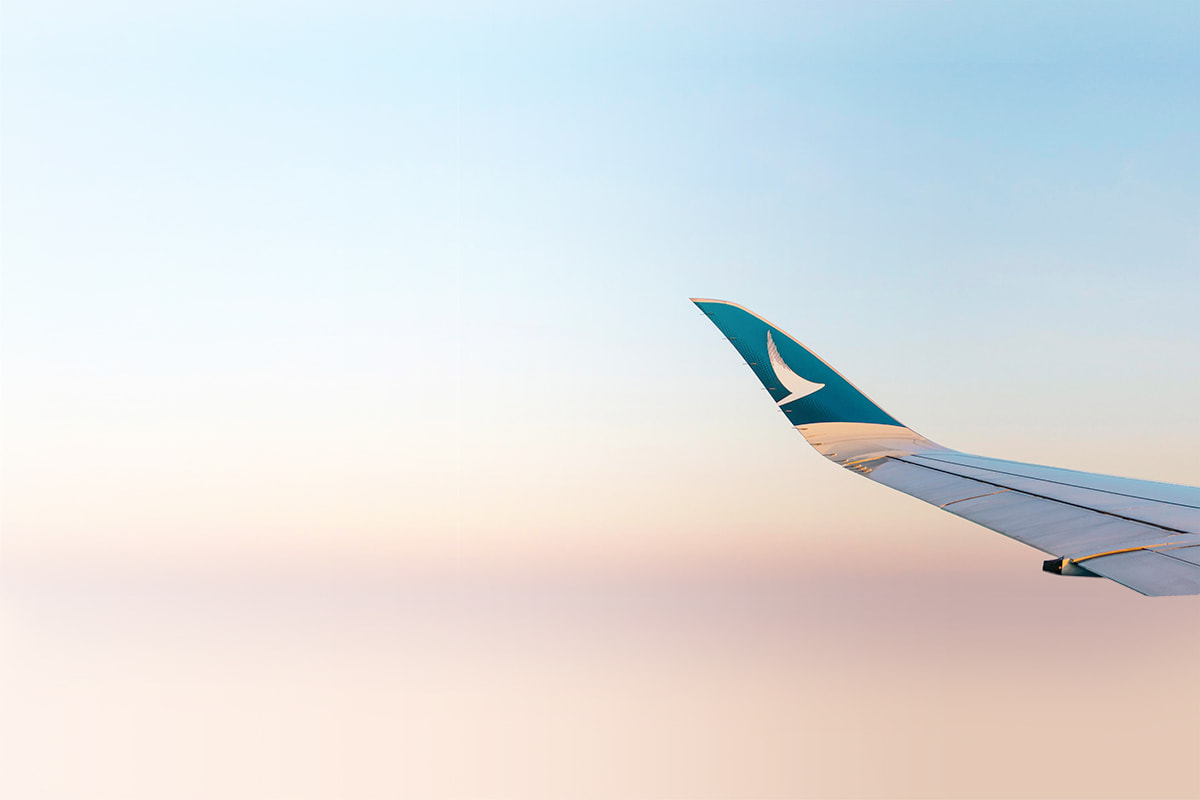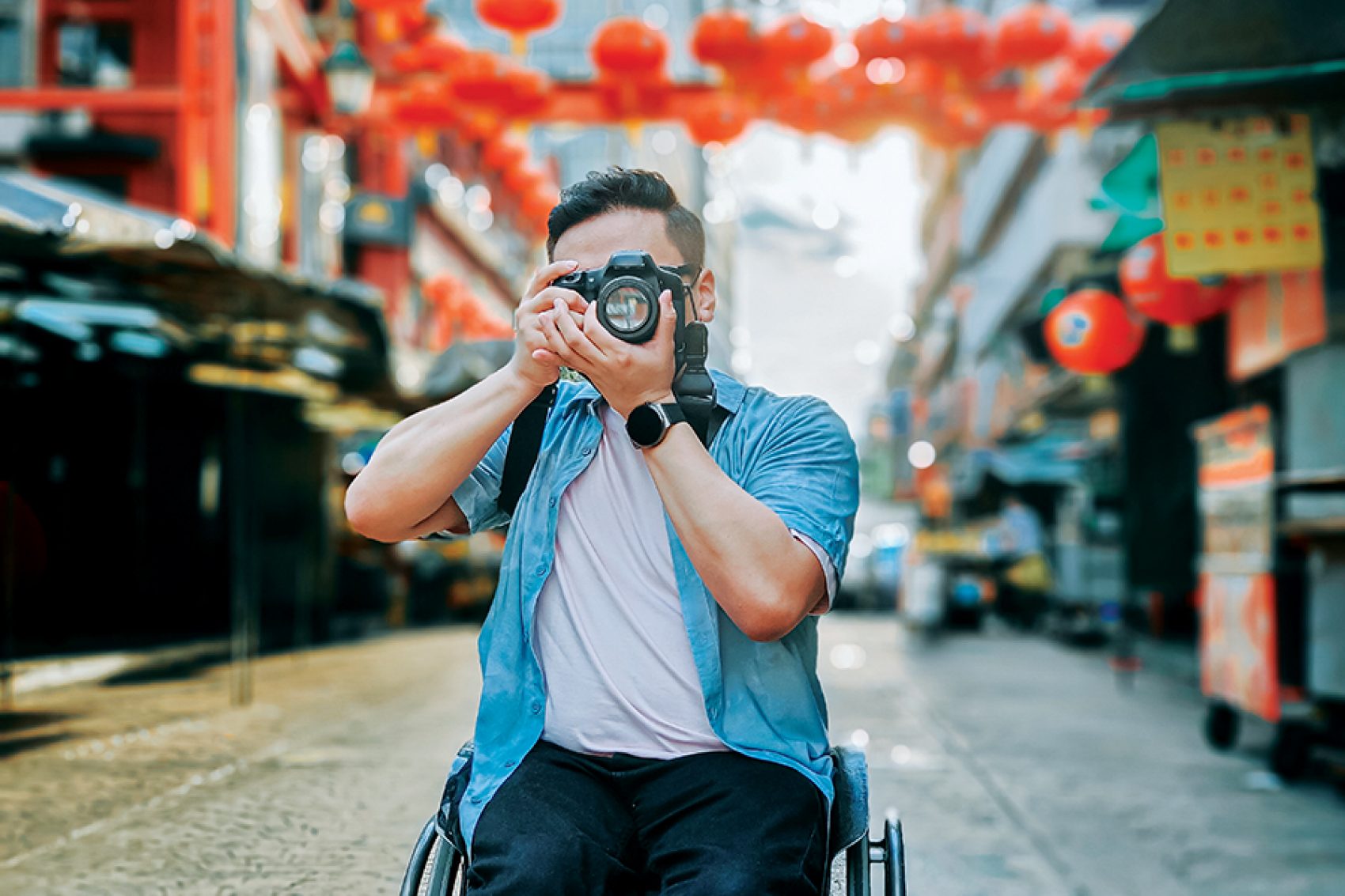
Credit: Getty Images
Carmen Yau travels the world with her breathing machine, temperature-sensitive medication and wheelchair hoist in tow. The educator, social worker and advocate for barrier-free cities was born with muscular atrophy, meaning she knows better than anyone the challenges of travel with a disability. “The inconvenience used to upset me, but I’ve learned to change my attitude – to manage my expectations,” she says.
We all know that travel is liberating: it fuels curiosity and sets free the adventurous spirit. But the logistics of exploring the world can be frustrating if you are one of the 1.3 billion people worldwide with a significant disability – encompassing everything from limited mobility to sensory and processing challenges. When it comes to travel, the able-bodied still dominate.
Yet there’s a growing number of operators and destinations that address the needs of travellers with disabilities. Increasingly, travel concierges are catering to the needs of customers by working with trusted partners to create seamless travel, through everything from visa applications to transportation – and elements like ensuring that hotel rooms are fully accessible, or that experiences won’t overload the senses.
“We believe everyone should have equal opportunities to enjoy the wonders of travel”, says Charlotte Harris, managing director of Hong Kong luxe travel agency Charlotte Travel. “It’s essential for us to know about our client’s needs and preferences so we can advocate for them, address challenges creatively and proactively, and be meticulous in our research.”
“There is a trend of families wanting to bring their loved ones on family trips, despite mobility challenges and limitations,” says Lim Kok Yong, co-founder and director of Hong Kong bespoke travel agency Intriq Journey. “We work with local partners to provide our clients with end-to-end services,” he says. “As a result, our clients can look forward to just having a great time and not worrying about logistics.”
Travel is more than just moving from one place to another; it’s an experience that enriches the soul. From skiing to safari, the barrier-free industry is blossoming, offering more ways to get out and see the world while making memories to last a lifetime. As Carmen Yau says: “Everyone has the right to be adventurous.”
Wonders on wheels
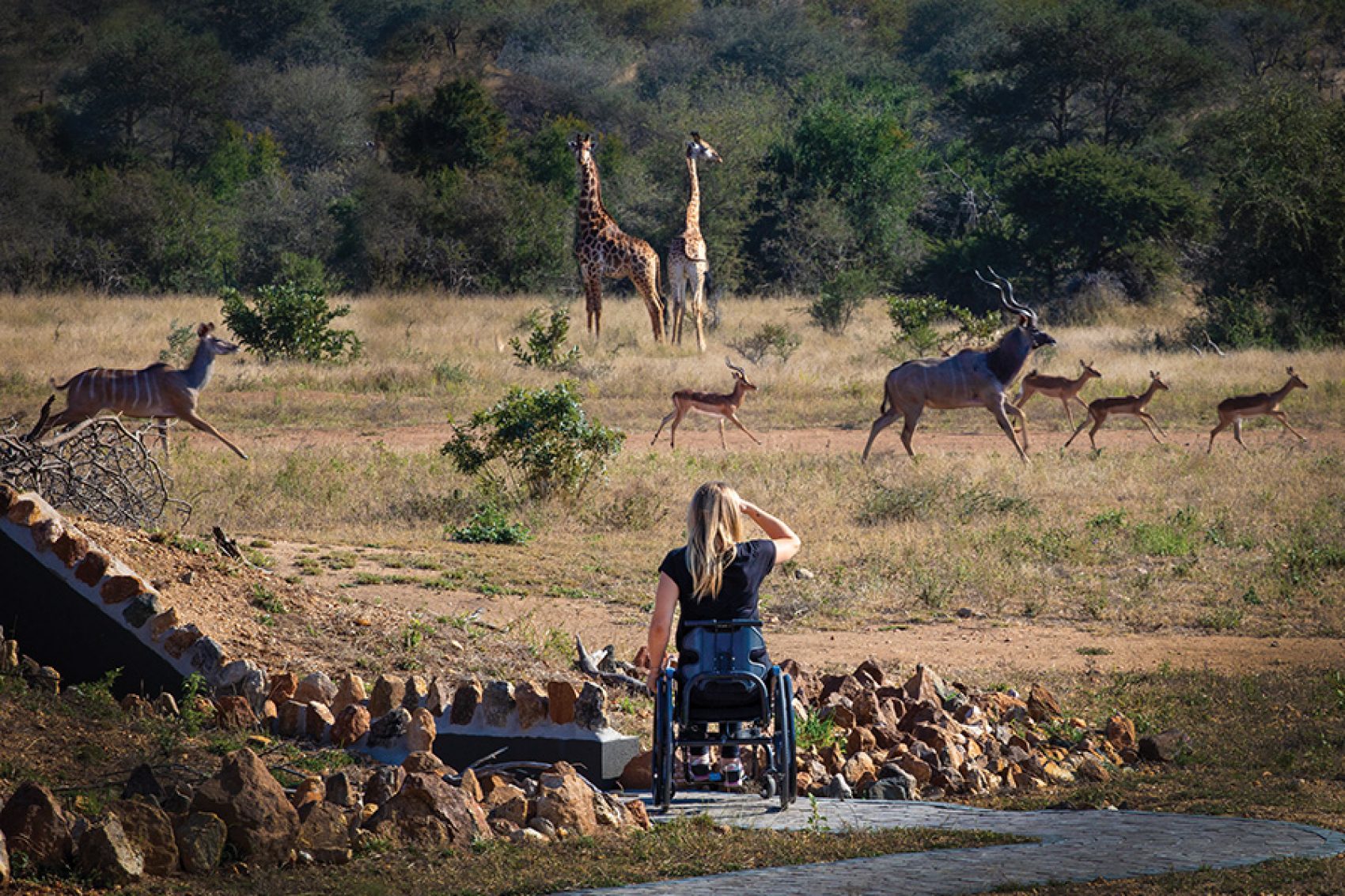
Credit: Roger Coan
Ximuwu Lodge
A new addition to South Africa’s Greater Kruger wilderness, Ximuwu Lodge is a fully accessible luxury safari for private bookings of up to eight guests. All rooms are designed to suit ease of access for guests with mobility impairments, while adventurous experiences, like dinners in the bush and game drives, are aided by ramps and vehicles with slide- out seats, ensuring that no one misses out on crossing the Big Five off their bucket list.
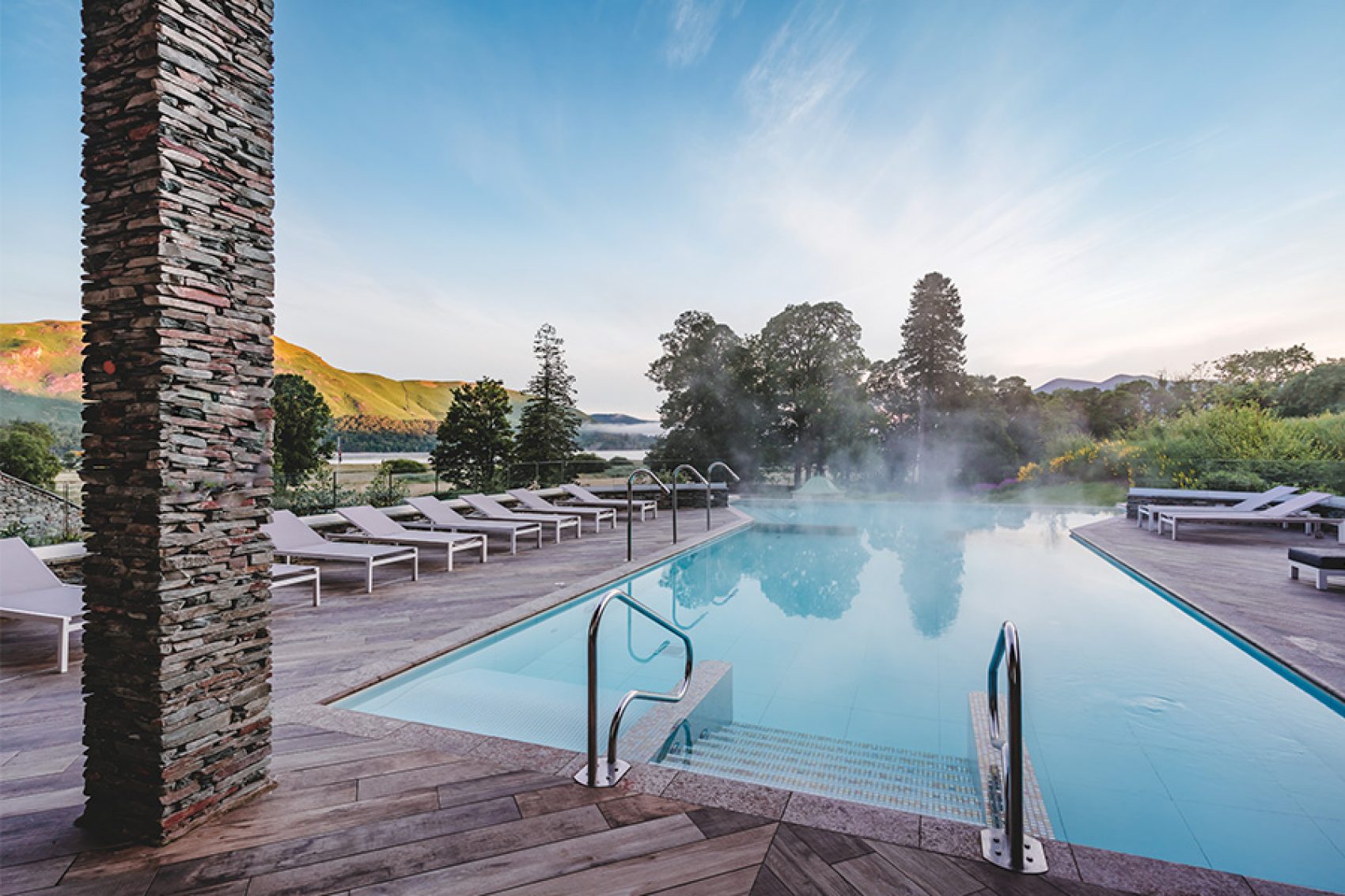
The Calvert Trust
The Lake District’s jaw-dropping peaks and stunning waters are just waiting to be discovered. The Calvert Trust , based in Keswick, specialises in accessible outdoor pursuits, including sailing, canoeing, orienteering and abseiling. After a day of fresh air, retreat to the Lodore Falls Hotel and Spa , a luxury lakeside property which welcomes all guests with adaptive accommodation throughout its rooms and spa facilities.

Crystal Ski
The joys of fresh snow are for everyone. Crystal Ski is a ski holiday concierge with a dedicated adaptive team covering everything from hotels and transfers to lessons and equipment hire. The Crystal Lodge in Whistler, Canada is the perfect place to experience the magic of winter: it’s accessible throughout with low beds and sinks, and located just 200m from the gondola.
5 top travel tips
Carmen Yau’s advice for travelling with a disability:
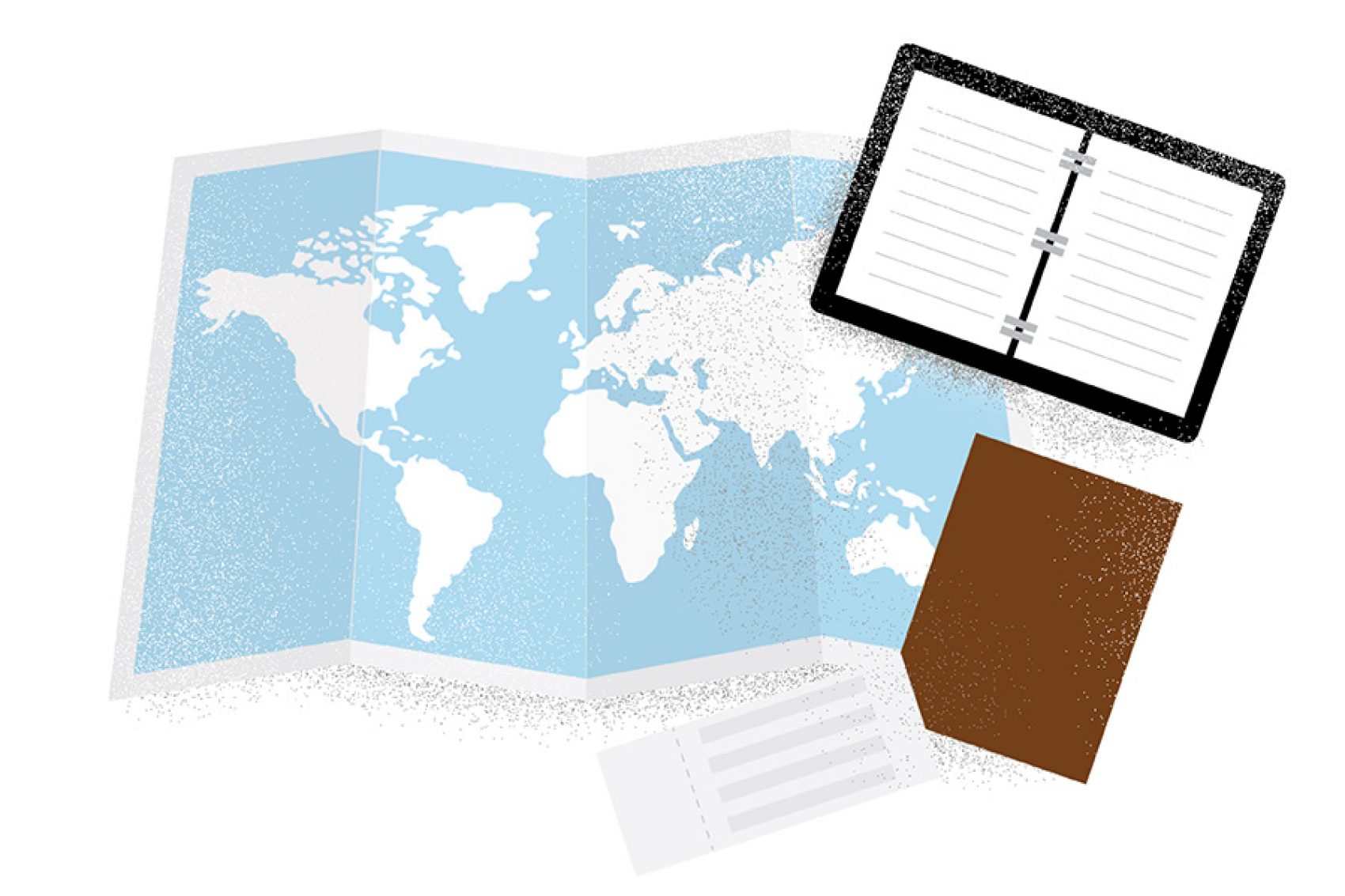
Credit: Bay Leung
1. Plan ahead and arrive early
Organise all relevant medical certificates and prescriptions. Arriving at the airport early will help ease a lot of the logistical pressure.

Credit: Bay Leung
2. Communicate clearly
Be clear about your needs and requirements at every checkpoint. Get confirmation on details about your flight, accommodations and travel activities well ahead of time.

Credit: Bay Leung
3. Store your medication properly
Contact the distributors of your medication to be sure of how to store your medication – ideally in its original packaging.
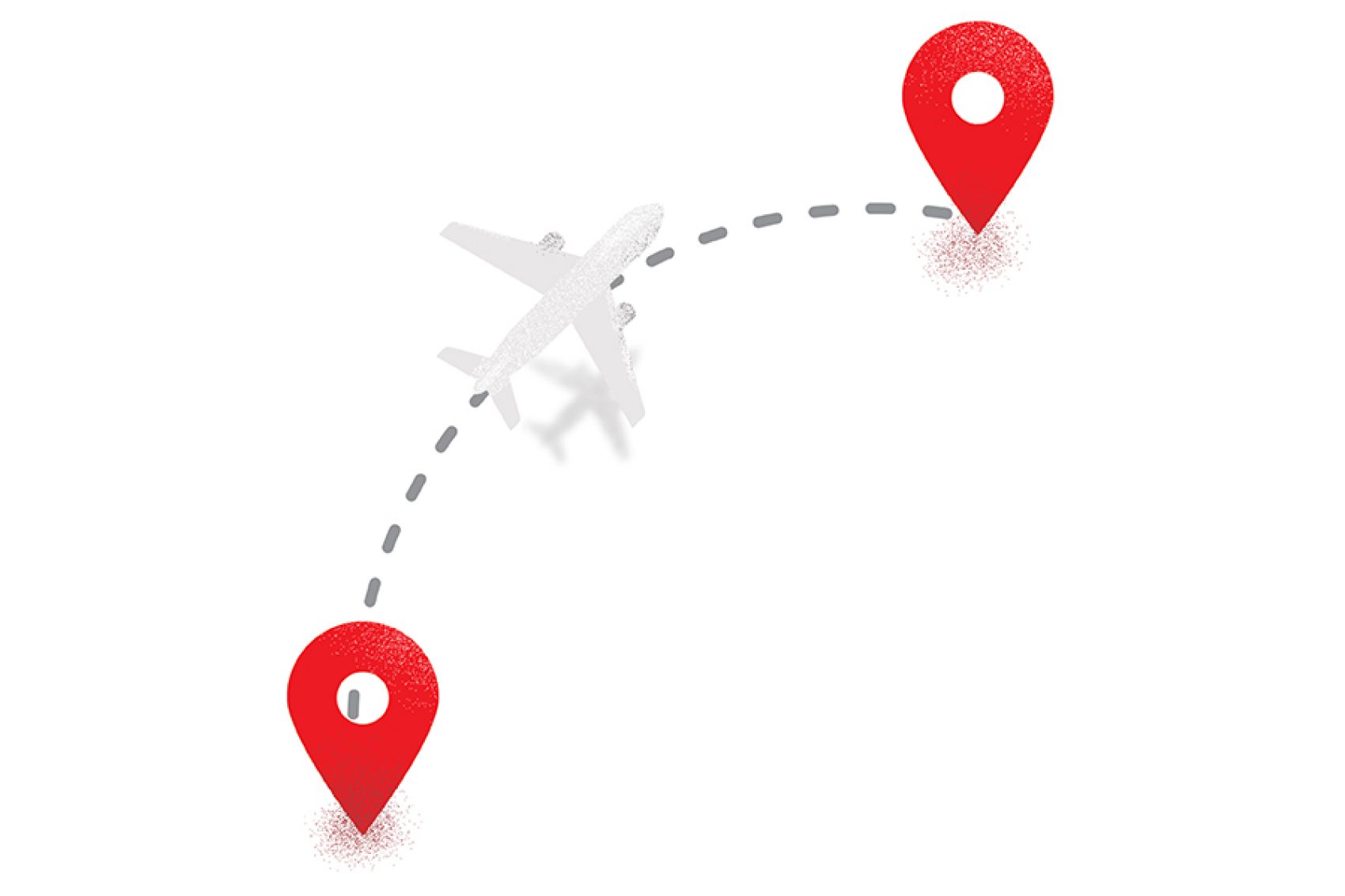
Credit: Bay Leung
4. Fly direct
This helps avoid the unnecessary stress of having long waits and crucial items being misplaced, lost or damaged during transit.
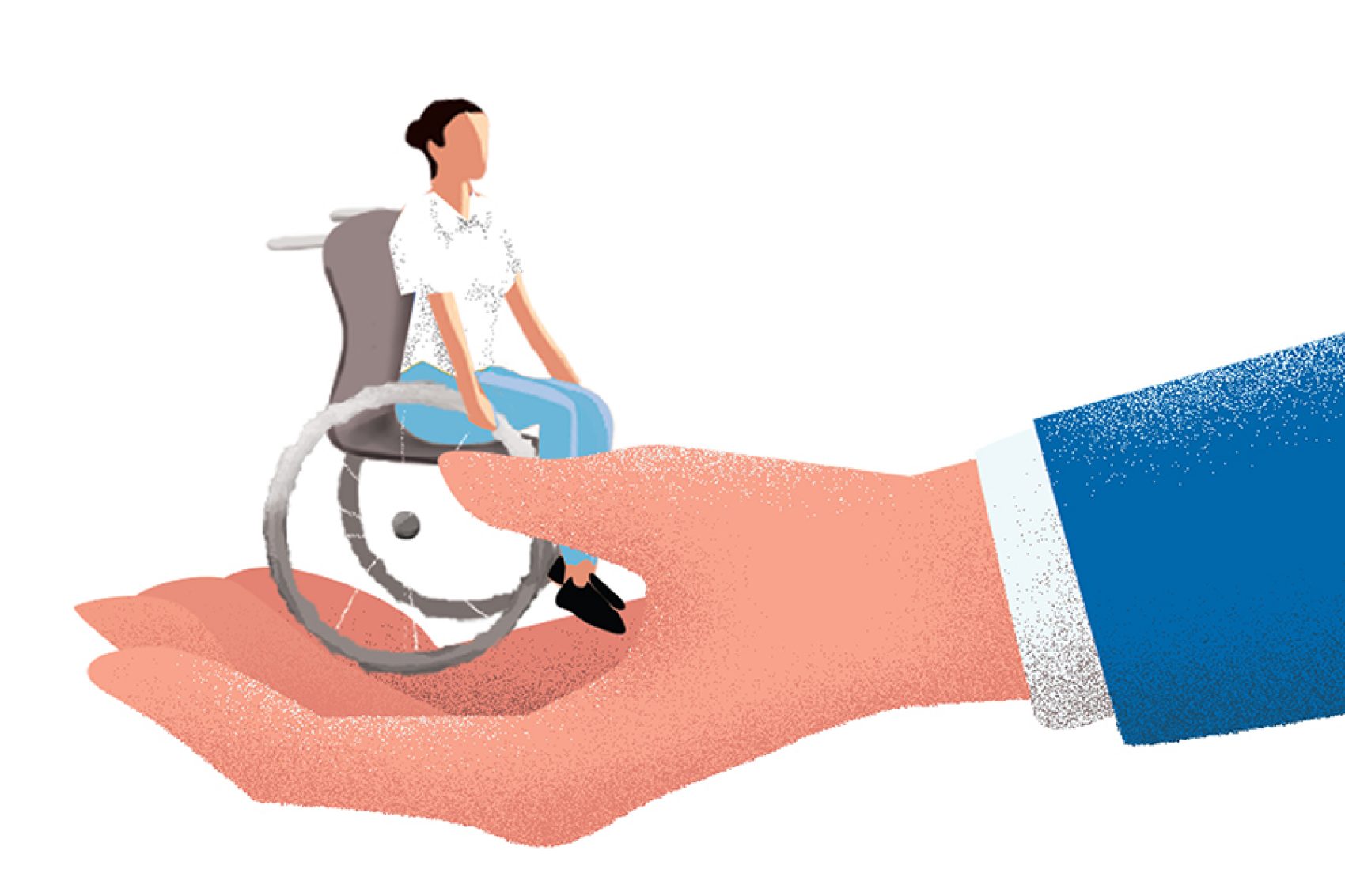
Credit: Bay Leung
5. Get insured
When accidents happen, there are more risks for those with disabilities. Getting insured will give you greater peace of mind, so you can enjoy your travels.
Accessible Hong Kong
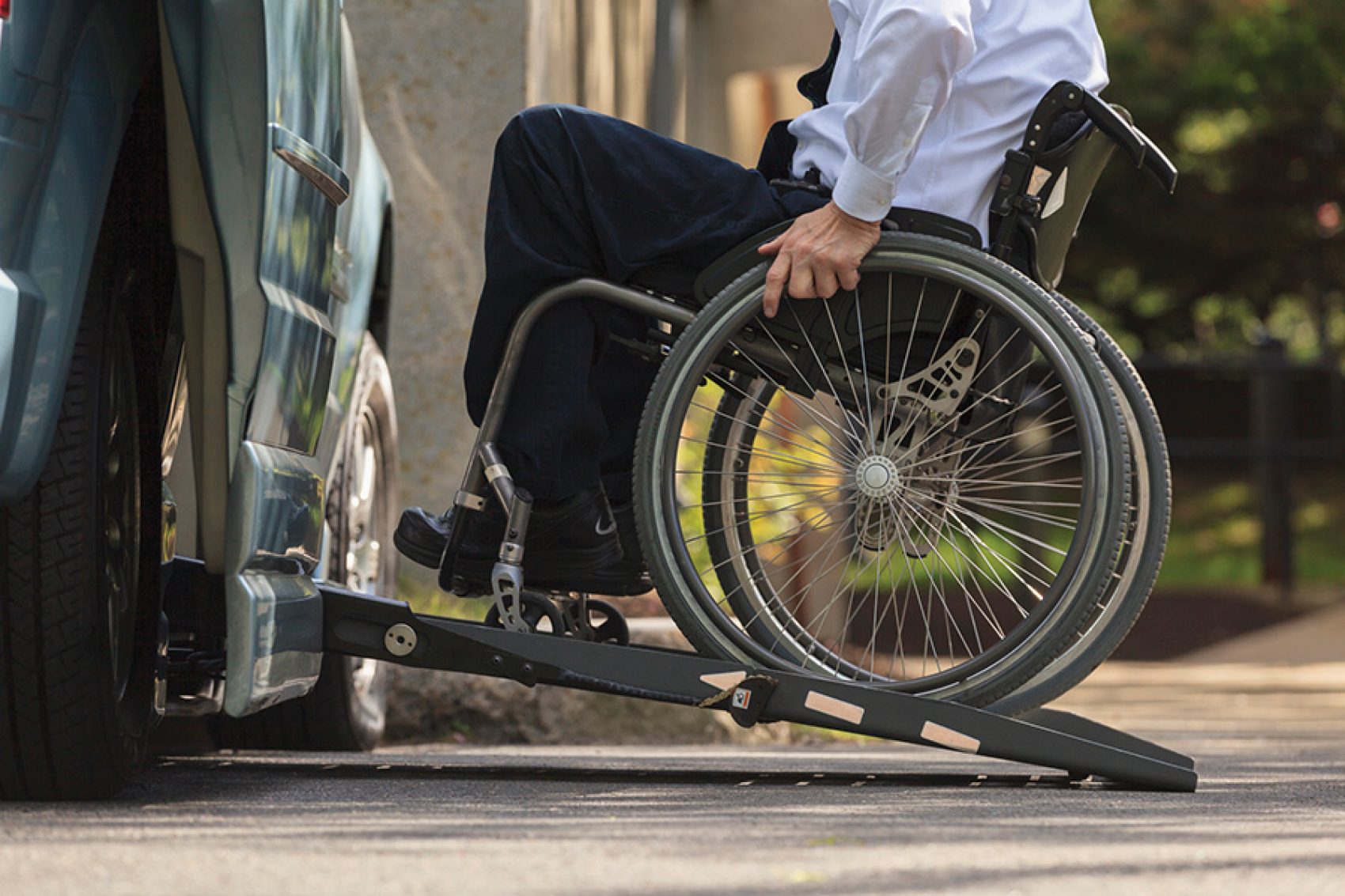
Credit: Getty Images
1. Public transport
Hong Kong’s public transportation system links to every corner of the city. Ramps are available on every bus and by request at every MTR station. Wheelchair users have priority for queuing and seats. What’s more, it’s free to bring a wheelchair on board a taxi.
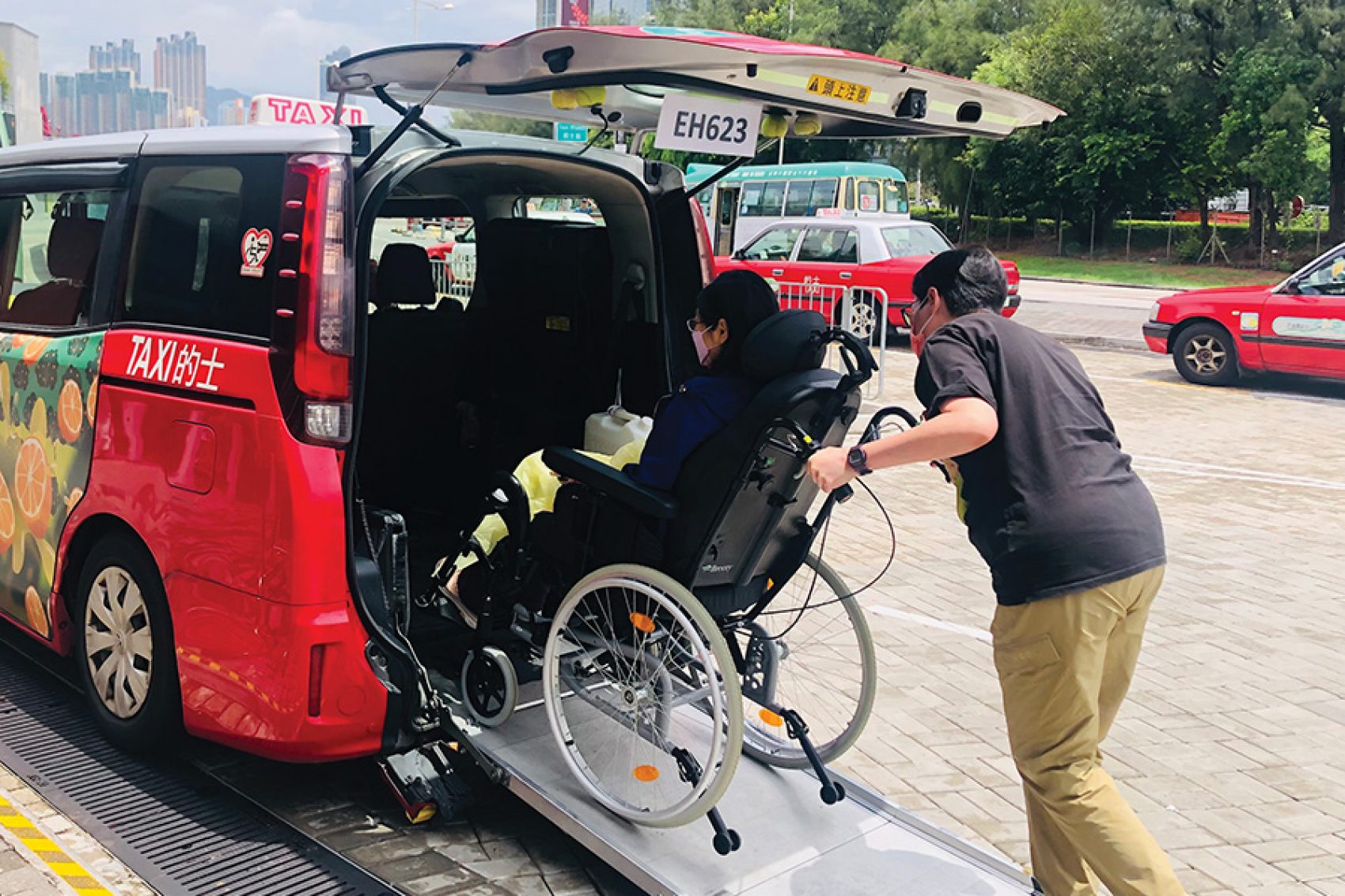
2. Getting around
Diamond Cab , a pioneer in the accessible mobility market, offers a range of taxis built for wheelchair access. Their drivers are well-versed in the most accessible routes, parking areas and barrier-free destinations. “Our drivers share the same belief as us: to provide inclusive, professional and compassionate service to all passengers,” says CEO Doris Leung.
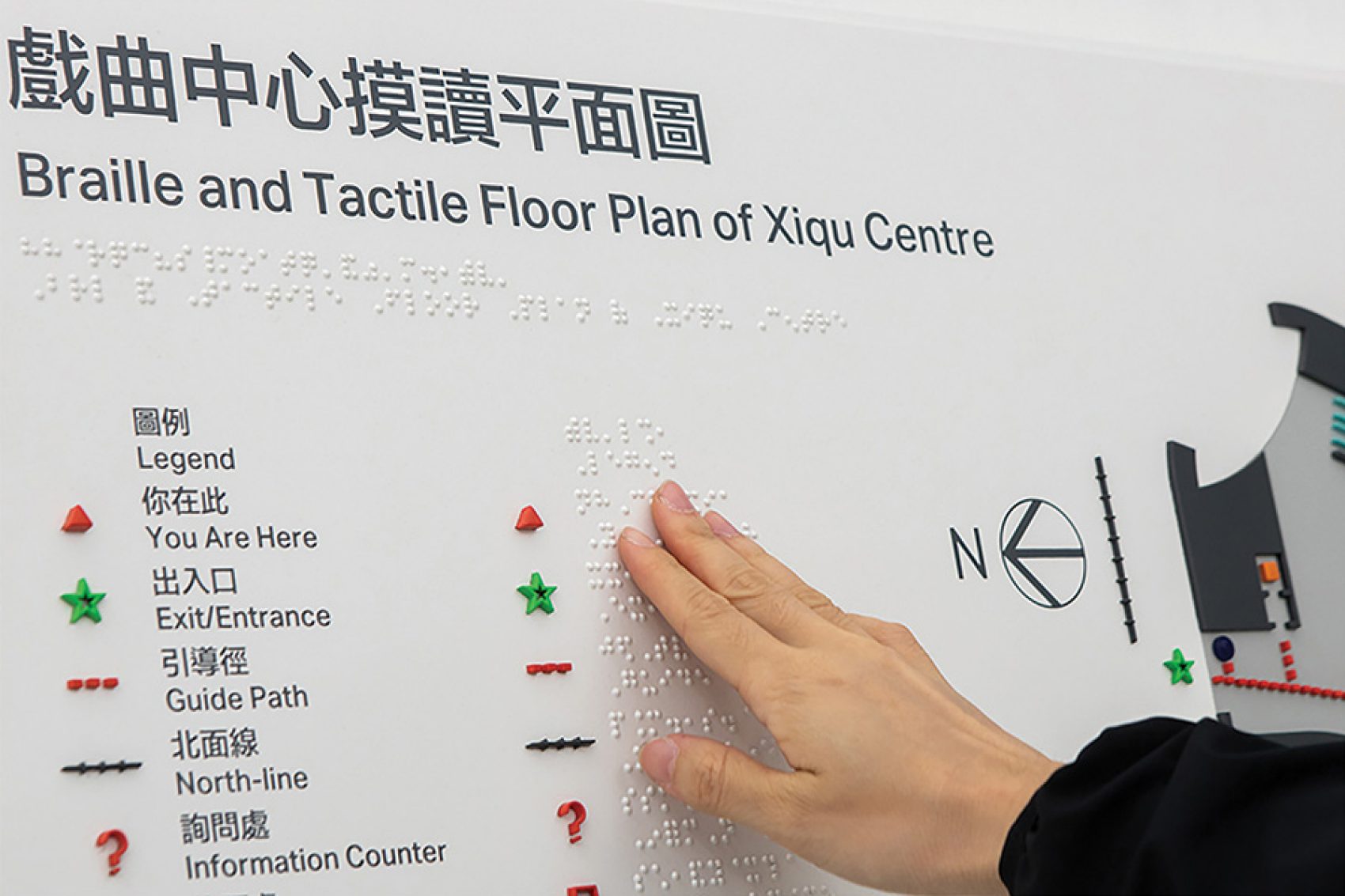
3. Arts and culture
West Kowloon Cultural District attractions like M+, Xiqu Centre and the Palace Museum are inclusive environments for culture vultures. All venues are barrier-free, with wide circulation routes, ramps, accessible lifts and toilets, and refuge spaces.

Credit: Getty Images
4. Accessible stays
Hotels including the Rosewood Hong Kong, Island Shangri-La, JW Marriott, Four Seasons and Mandarin Oriental are exemplary in their provision for travellers with disabilities. Each provides ramp access to various dining spaces and facilities and offers room features like rail guards, walk-in showers and bathing chairs.
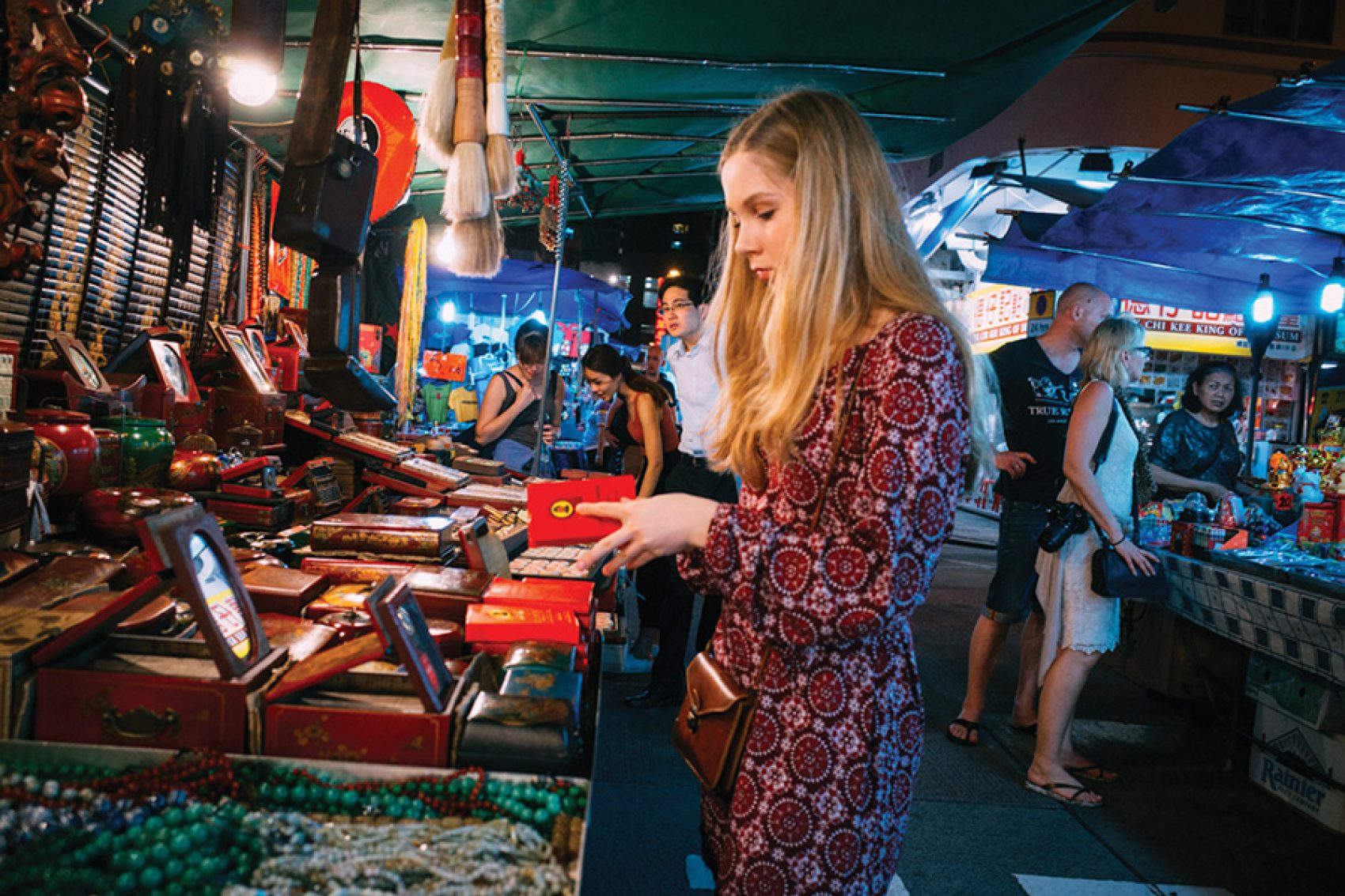
5. Exploring the city
Walk in Hong Kong organises accessible street tours steeped in local culture. Their Good Evening Kowloon tour spotlights the charms of Kowloon nightlife, from dai pai dong to fortune-tellers. “While places like Victoria Harbour are easily accessible, we want to share these equally charming, lesser-seen sides of Hong Kong and prove that everyone can enjoy the same experience together,” says CEO Paul Chan.
More inspiration
Hong Kong travel information
- China – the Chinese Mainland, Hong Kong SAR, Macao SAR and Taiwan Region
- Hong Kong SAR - English
- Chinese Mainland (China) - English
- Taiwan China - English
- 香港特別行政區 - 繁體中文
- 中国內地 - 简体中文
- 中國台灣 - 繁體中文
- Africa
- South Africa - English
- Asia
- Bangladesh - English
- Korea - English
- Singapore - English
- Cambodia - English
- 한국 - 한국어
- Sri Lanka - English
- India - English
- Malaysia - English
- Thailand - English
- Indonesia - English
- Maldives - English
- ประเทศไทย - ภาษาไทย
- Indonesia - Bahasa Indonesia
- Myanmar - English
- Vietnam - English
- Japan - English
- Nepal - English
- Việt Nam - tiếng Việt
- 日本 - 日本語
- Philippines - English
- Australasia
- Australia - English
- New Zealand - English
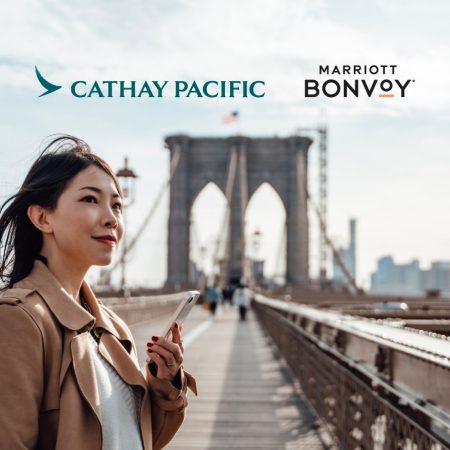


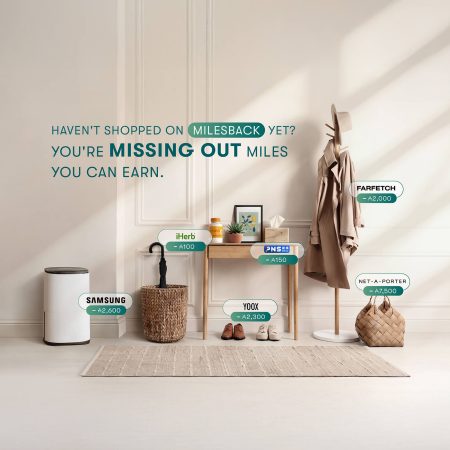
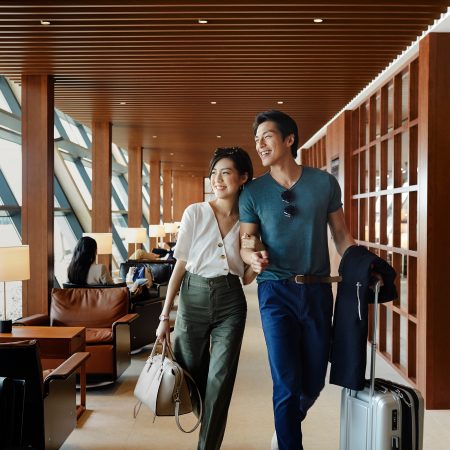
.renditionimage.450.450.jpg)

